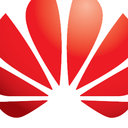Glomerular C1q deposition and serum anti-C1q antibodies in anti-glomerular basement membrane disease.
Keywords
Abstract
BACKGROUND
Anti-glomerular basement membrane (GBM) disease is a well-known antibody-induced autoimmune disease. A few patients have glomerular C1q deposition, but it is usually absent on renal histopathology. The role of C1q deposition in kidney injury is unclear. Recently, anti-C1q antibodies are demonstrated to be pathogenic in the target organ damage of many autoimmune diseases, by facilitating C1q deposition and enhancing complement activation via classical pathway. In the current study, we investigated the associations between anti-C1q antibodies in sera and C1q deposition in kidney of patients with anti-GBM disease.
RESULTS
It was shown that the severity of kidney injury was comparable between patients with and without C1q deposition, including the prevalence of oliguria/auria, the median percentage of crescents in glomeruli and the mean concentration of serum creatinine. Serum anti-C1q antibodies were detected in 15/25 (60%) patients with a low titer. The prevalence of C1q deposition in kidney was comparable between patients with and without serum anti-C1q antibodies (26.7% vs. 30.0%, p > 0.05). No association was found between anti-C1q antibodies and the severity of kidney injury.
CONCLUSIONS
The classical pathway of complement may not play a pathogenic role in the kidney injury of human anti-GBM disease. Anti-C1q antibodies could be detected in more than half of patients, which need further investigations.


